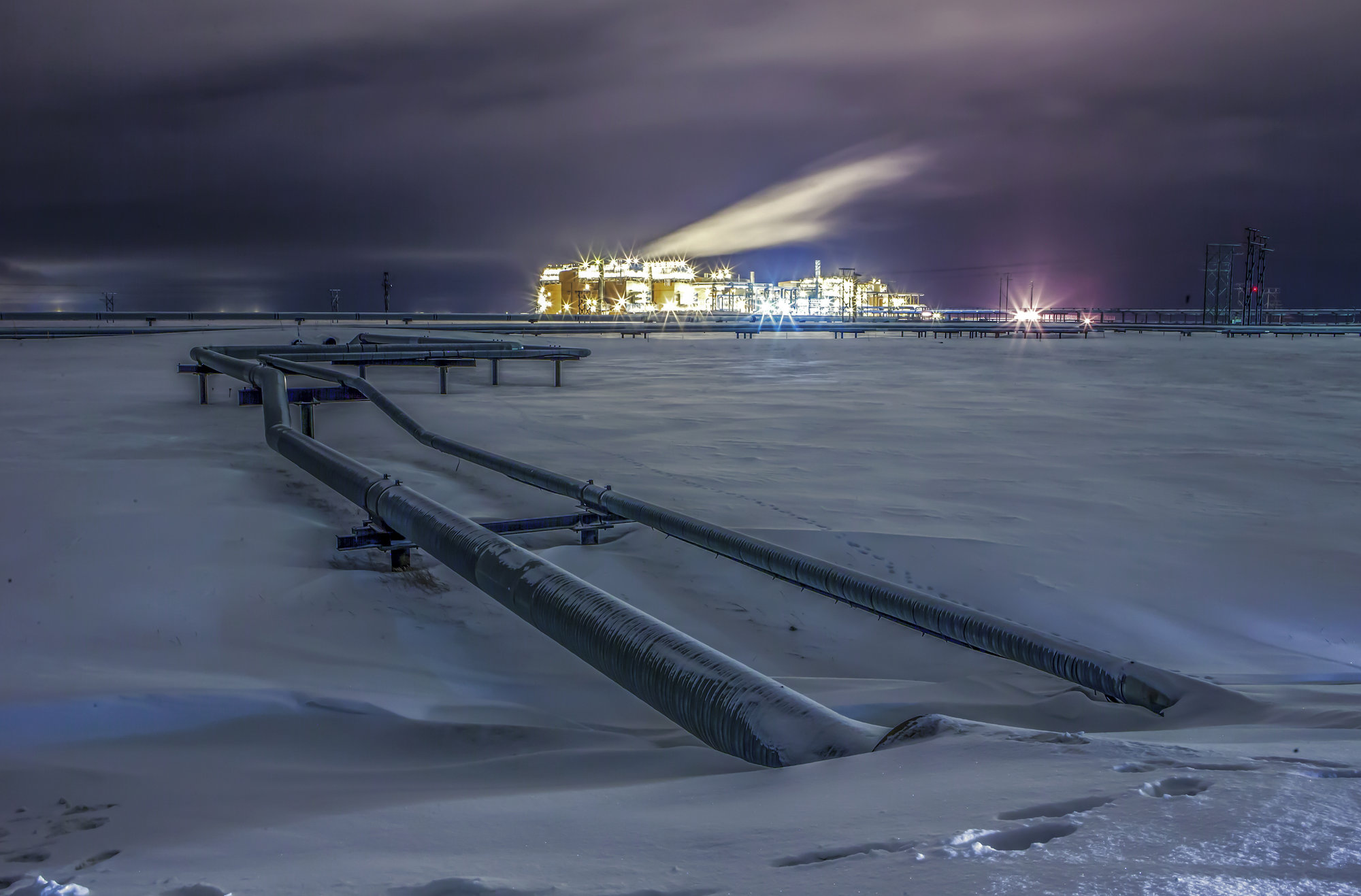By Tuana Kardas, Year 11
Beneath all the glossy advertisements, the Willow Project is claimed to be a nightmare of corporate greed that will lead to inevitable environmental disasters. Approved on March 13, 2023, by US President Joseph Biden, the Willow Project is proposed as a massive and decades-long oil drilling venture located on Alaska’s North Slope in the National Petroleum Reserve.
Background on the Willow Project
Crude oil is one of today’s most utilized valuable resources. It is used daily in the base form of petroleum products helping power cars, ships, and planes, but it can even be found in everyday products like DVDs, perfumes, and shampoos. Moreover, considering the world’s sociopolitical situation, globally, powerful nations, such as the United States of America, have become keen to attain more of this resource. Many ideas for the extraction of crude oil have thus been suggested, the biggest being the proposal of the Willow Project, aiming to produce approximately 576 million barrels of oil over 30 years.
The plan had been submitted by the Houston-based energy company Conoco Phillips and approved initially by the former Trump administration in 2020. In 2023, the Biden administration re-approved the project, where certain amendments were made to the plan. The project was initially designed to use five drilling pads for the extraction; however, it has now been changed to three pads only, enabling 90% of the oil to be drilled. Although the president has made these changes for the better, a significant uprising of activism has developed online concerning the project’s approval; over three million signatures were signed against it on a Change.org petition. In retaliation, state lawmakers have openly claimed that the project is beneficial due to the jobs it will generate, the boost of domestic energy production it will create, and to help lessen the US dependence on foreign oil. The Coalition of Alaska Native groups has also stated their need for a new source of revenue for the region to fund local services like education and healthcare; without the money, they rely on the state and federations. Contrarily, other residents, those in close proximity to the project, such as tribal members in the Native village of Nuiqsut, are greatly concerned about the health and environmental impacts that will consequently occur with the project’s initiation and thus are against the industrialization of the Arctic. These individuals consider the 9.2 million metric tons of planet-warming carbon dioxide pollution the project would release yearly for each year it is actively used. Not only would such cause the fast-warming Arctic, but it would cause the destruction of habitats for native species and alter animal migration patterns. Therefore, many are concerned about the world’s future regarding the irreversible damages that will follow up the project’s installation.
As previously mentioned, as of the approval, the White House has received over one million personal letters concerning the chain of consequences the project will release. This authorization implies for construction to begin; however, it still needs to be clarified on when as there are numerous impending legal challenges ongoing, including Conoco Phillips being sued by numerous environmentalist groups to stop the project. In addition, construction can only be done during winter as ice is needed to build infrastructure, and therefore, the date of when such drilling will begin is still left to be determined.
Overall, the discussion, idea, and approval of the Willow Project have left millions worldwide shocked and worried about the planet’s future.
Interview with Mr. Pedro de Carvalho Maalouf
To gain some perspective, I interviewed Mr. Maalouf who is a biology teacher who also teaches Système de l’environnement et de la société at the La Grande Boissière, campus of the International School of Geneva.
What are your thoughts on the approval of such a project?
“The project is disappointing on numerous levels, specifically regarding the fact that promises had been made, especially by the Biden administration. Such included the argument of limiting the use of fossil fuels; unfortunately, it is clear that such a promise is not currently being kept. However, it is understandable that the agreement was made and overlooked by the Trump admin previously; thus, it is comprehensive why some claim Biden’s hands to be tied on such a matter’s approval. Nonetheless, the project is a great mistake and will have detrimental impacts. For instance, the Intergovernmental Panel on Climate Change (IPCC) is a United Nations international organization tasked with promoting a scientific understanding of anthropogenic climate change. They consist of experts in numerous fields who study current climatic situations and write reports to give projections for the upcoming decades. In their previous reports, the panel had made clear statements concerning the necessity of dramatic changes in our global actions; however, especially with this project’s approval, we are taking a horrible direction the other way. This is to say that the project is entirely against what the professionals have proposed; thus, the Willow Project does not fit in with what would be ecologically and environmentally needed for our planet’s future.”
Considering the legal and activism complications, do you expect the project to go through?
“Hopefully, if the project does not go through, it would be a huge win for the climate,” claims Mr. Maalouf. It is a well-known fact that politics, specifically those in the US, are powerful, but the industry for fossil fuels is even more powerful. This, therefore, causes a slim chance of such a project being halted; however, there is always some hope. If it can be stopped before birth, the planet will be taking a step toward improvement. As the project still has to begin construction, some time remains for changes. “We should all just remain hopeful.”
If the project goes through, what does it mean for humans and animals from an environmentalist’s point of view?
“The effects of such a project can be seen from a local and global perspective. Alaska is known to be a pristine region for animals, and therefore the Willow Project will inevitably negatively impact the area’s biodiversity. From a global perspective, the intense carbon emission will directly affect greenhouse gas emissions; thus, the implications would be global. For instance, greenhouse gases would hurt ecosystems worldwide. An example would include the effects of ocean acidification on sea creatures and, specifically, on coral reefs. Such would also cause polar biomes to get warmer and there to be significant shifts in ecosystems. This would include tundras becoming taigas and tropical forests becoming Savannah-like ecosystems with possibilities of desertification.”
“For humans, the local scale would imply that natives have job opportunities; therefore, in the short term, it would provide them with economic benefits. However, in the longer term, it would not be sustainable. More so, on a global scale, such would have detrimental effects in the context of climate change. Temperatures would fluctuate around the globe; sea levels would rise, causing problems for coastal ecosystems and populations. Humans would also have to endure intense meteorological changes like drought, wildfires, severe storms, and increased frequency and intensity of such events.”
“Through this, it becomes clear that for both humans and animals, many local and global factors will play out, showing the direct and indirect effects of the Willow Project on our planet. “
Are there other, more sustainable, and equally quick options to have energy than drilling for crude oil?
“Today’s infrastructure was designed to run on fossil fuels like oil, coal, and gas. These energy forms are far less expensive than renewable energy sources like wind and solar power. Therefore, long-term investments in renewable energy are considered more advantageous and sustainable from a social, environmental, and economic standpoint. The investment, however, can be rather pricey in the short term, and many alternative energy alternatives depend on the availability of resources. Iceland, for example, is a fantastic example of using geothermal energy, as it supplies more than 60% of its energy requirements. In addition, governments have used and may employ sunshine, ocean currents, and other natural resources to produce energy. The fundamental issue is that governments find transitioning from fossil fuels to renewable energy challenging because many infrastructures are already in place.
“Investing in renewable energy sources is a gradual process.” Regrettably, many politicians propose quick and cheap energy sources because they have a short-term perspective on things, and economic downturns usually worsen things. Nevertheless, switching to renewable energy is a worthy and significant endeavour because the benefits of it vastly outweigh those of fossil fuels.”
Can any positives stem from this project?
“Fortunately, there are positive outcomes that will take place if the project does occur. It is common knowledge that the project will bring significant revenue in addition to helping drill large amounts of crude oil to help run our day-to-day lives more smoothly and efficiently. Furthermore, the project will also be a chance to create thousands of jobs for natives where through their gains in revenue, living in their regions of Alaska would become more affordable. For example, it would help ease the ability to purchase necessities; as due to the area’s isolation, all imports, and hence most products, tend to be costly, making living standards high. Therefore, “Although the negatives heavily outweigh the positives, looking at the favourable outcomes is always important.”
Is there anything we, as the public, can do to make a change and have an impact?
“It is difficult to make a change independently if you are not a scientist, politician, or researcher. However, through being active, much of a change can begin. An example of this is currently seen with all the online activism, where millions of individuals are signing petitions and using their voices. Furthermore, if of legal age, people should and are encouraged to vote and make good political choices to help impact our future for the better. Finally, and most importantly, educating yourself on such topics is essential. By gaining knowledge about these global issues, it is easier to raise awareness thus and adequately be engaged in taking action and ensuring a change to help our planet’s future.”



